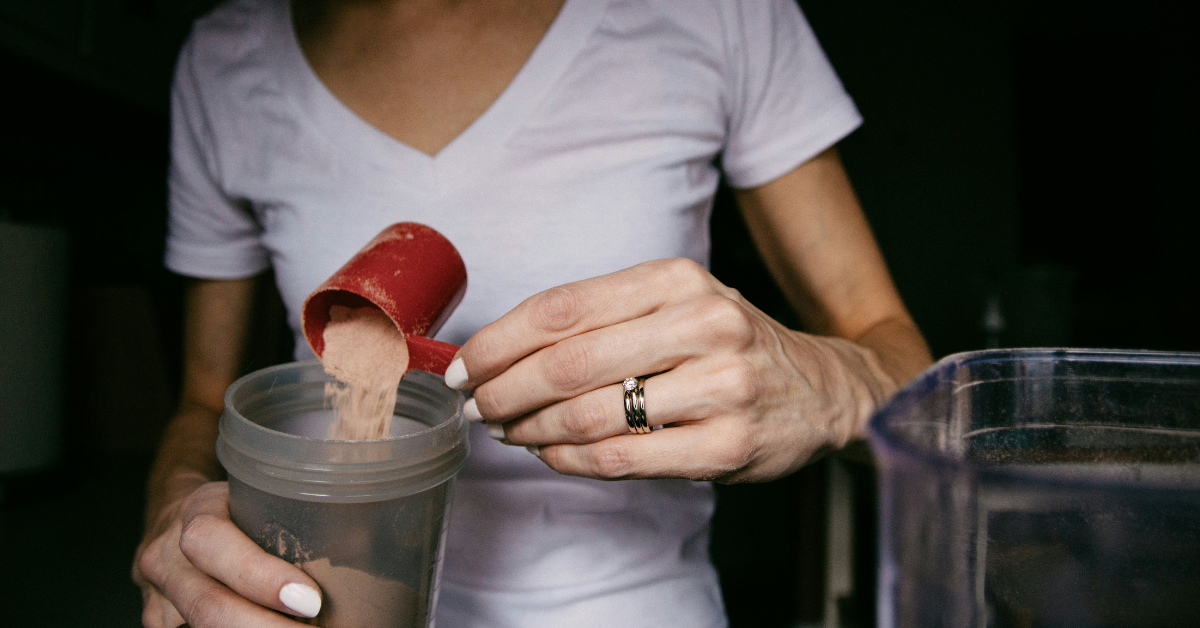Here Are the Protein Powders Linked to High Levels of Lead
Protein powders may offer more than the nutrients you're looking for.
Updated Oct. 15 2025, 1:53 p.m. ET

There are plenty of reasons that people may decide to take protein powder. Makers of the mix, which can sometimes also be sold in a liquid form known as a shake, claim to offer several health benefits.
In fact, many people tout the boost the mix provides with everything from helping with recovery after a workout, to helping them manage their weight. But, when that protein powder has a hidden ingredient, some people may feel tricked by the promises they've been given.
It sounds like many protein powders are packing a secret ingredient that they don't want customers to know about: lead. If you're someone who consumes the powder supplement, you may be wondering which protein powders have lead in them, and what can happen to you if you ingest too much of it.
You can find out more about the connection between lead and protein powder, including the names of some popular brands that have come back positive for the toxic mineral.

Which protein powders have lead contamination?
In October 2025, Consumer Reports released its findings after the publication tested 23 protein powders and shakes. According to them, nearly every product the publication tested came back with elevated lead levels, and two-thirds had levels that were higher than what many experts consider safe. Additionally, two of the products came back with such high levels of the toxic metal that Consumer Report advised against using them entirely.
They include Naked Nutrition's Mass Gainer and Huel's Black Edition, which both had lead levels that exceeded 6.3 micrograms of lead, with Naked Nutrition hitting 7.7 micrograms during testing.
Additionally, Garden of Life's Sport Organic Plant-Based Protein and Momentous' 100 percent Plant Protein also rated high on the list, and the experts said that these shouldn't be consumed more than once a week.
Then, Consumer Reports ranked some of the following products as "okay to eat occasionally" due to increased lead levels:
- MuscleMeds Carnivor Mass
- Optimum Nutrition Serious Mass2
- Jocko Fuel Molk Protein Shake
- Vega Premium Sport-Plant-Based Protein3
- Quest Protein Shake
- Orgain Organic Plant-Based Protein Powder
- Optimum Nutrition Gold Standard Protein Shake
- Equip Foods Prime Protein
- Plant Fusion Complete Protein
- Ensure Plant-Based Protein Nutrition
You can get the complete list by reading the findings.
Why is there lead in protein powder?
Based on these findings, it may seem like lead is impossible to avoid when shopping for protein powders. However, information shared on the Texas Health blog seems to say that it's more about the source of the protein than the powder itself. That's because toxic heavy metals, like lead and cadmium, can be found in a lot of protein sources because they are both found in the environment where those sources live.
For example, a plant-based protein powder could test high for lead if it was grown in soil with a high concentration of the heavy metal. Similarly, animal-based protein sources (like those derived from cows) can test high if the cows are exposed to heavy metals in their drinking water or the food they eat.
While there is no recommended "safe" amount of lead exposure, it doesn't sound like there is enough concern for experts to tell people to avoid protein powder altogether.
Instead, it seems like they are suggesting that people shop with this information in mind, opting for protein powders and supplements that have gone through third-party testing, are made from organic materials, and that are made with vanilla flavoring as opposed to chocolate.